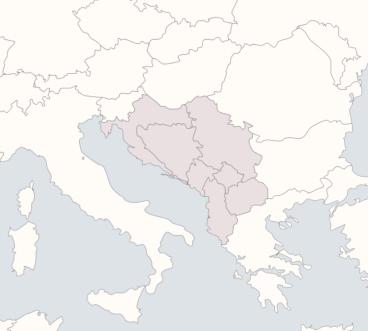Montenegro

Cardin, Shaheen, Wicker Introduce New Bipartisan Bil...
Aug 04, 2022WASHINGTON – Helsinki Commission Chairman Ben Cardin (MD) with Jeanne Shaheen (D-N.H.), Chair of the Senate Foreign Relations Subcommittee on Europe and Regional Security Cooperation and member of the Helsinki […]
Sweden’s Leadership of the OSCE
Jun 11, 2021In 2021, Sweden chairs the world’s largest regional security organization—the Organization for Security and Cooperation in Europe (OSCE)—which comprises 57 participating States stretching from North America, across Europe, and to […]
Swedish Foreign Minister Ann Linde to Appear at Hels...
Jun 03, 2021WASHINGTON—The Commission on Security and Cooperation in Europe, also known as the Helsinki Commission, today announced the following online hearing: SWEDEN’S LEADERSHIP OF THE OSCE Priorities for 2021 Friday, June […]

Helsinki Commission Commemorates 45 Years of Advanci...
Jun 03, 2021WASHINGTON—To commemorate the 45th anniversary of the Commission on Security and Cooperation in Europe, also known as the U.S. Helsinki Commission, on June 3, Chairman Sen. Ben Cardin (MD) and […]

Helsinki Commission Digital Digest: February 2021
Feb 26, 2021
Albanian Prime Minister Edi Rama to Appear at Helsin...
Sep 09, 2020WASHINGTON—The Commission on Security and Cooperation in Europe, also known as the Helsinki Commission, today announced the following online hearing: ALBANIA’S CHAIRMANSHIP OF THE OSCE Responding to the Multiple Challenges […]

2019 Human Dimension Implementation Meeting
Sep 13, 2019From September 16 to September 27, OSCE participating States will meet in Warsaw, Poland, for the 2019 Human Dimension Implementation Meeting (HDIM), organized by the OSCE Office for Democratic Institutions […]
OSCE Representative on Freedom of the Media Harlem D...
Jul 17, 2019WASHINGTON—The Commission on Security and Cooperation in Europe, also known as the Helsinki Commission, today announced the following hearing: STATE OF MEDIA FREEDOM IN THE OSCE REGION Thursday, July 25, […]
The Helsinki Process: A Four Decade Overview
Jun 28, 2019In August 1975, the heads of state or government of 35 countries – the Soviet Union and all of Europe except Albania, plus the United States and Canada – held […]
Lies, Bots, and Social Media
Nov 29, 2018From the latest revelations about Facebook to ongoing concerns over the integrity of online information, the U.S. public has never been more vulnerable or exposed to computational propaganda: the threat […]
Helsinki Commission Briefing to Examine Computationa...
Nov 26, 2018WASHINGTON—The Commission on Security and Cooperation in Europe, also known as the Helsinki Commission, today announced the following briefing: LIES, BOTS, AND SOCIAL MEDIA What is Computational Propaganda and […]
Interview with Georgia Holmer, Senior Adviser for An...
Nov 20, 2018By Yena Seo, Communications Fellow Georgia Holmer, an expert on counterterrorism policy, recently visited the Helsinki Commission offices to discuss her portfolio at the Anti-Terrorism Issues Unit in the Transnational […]
